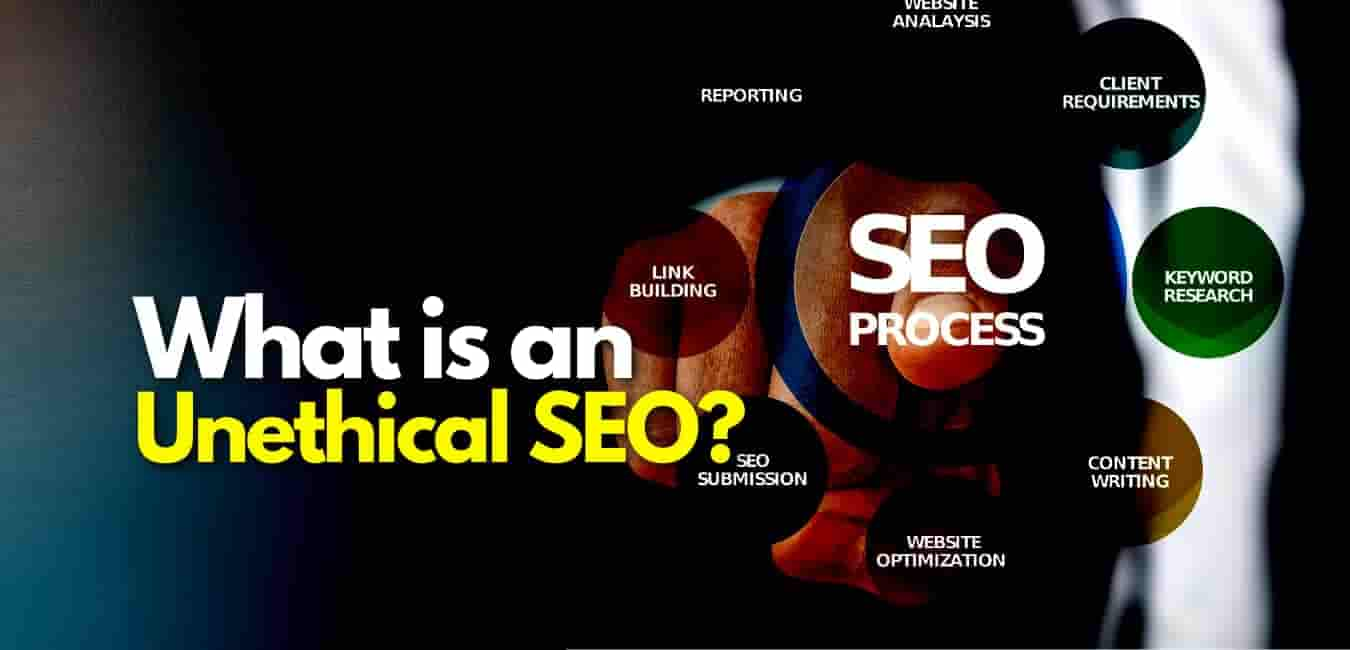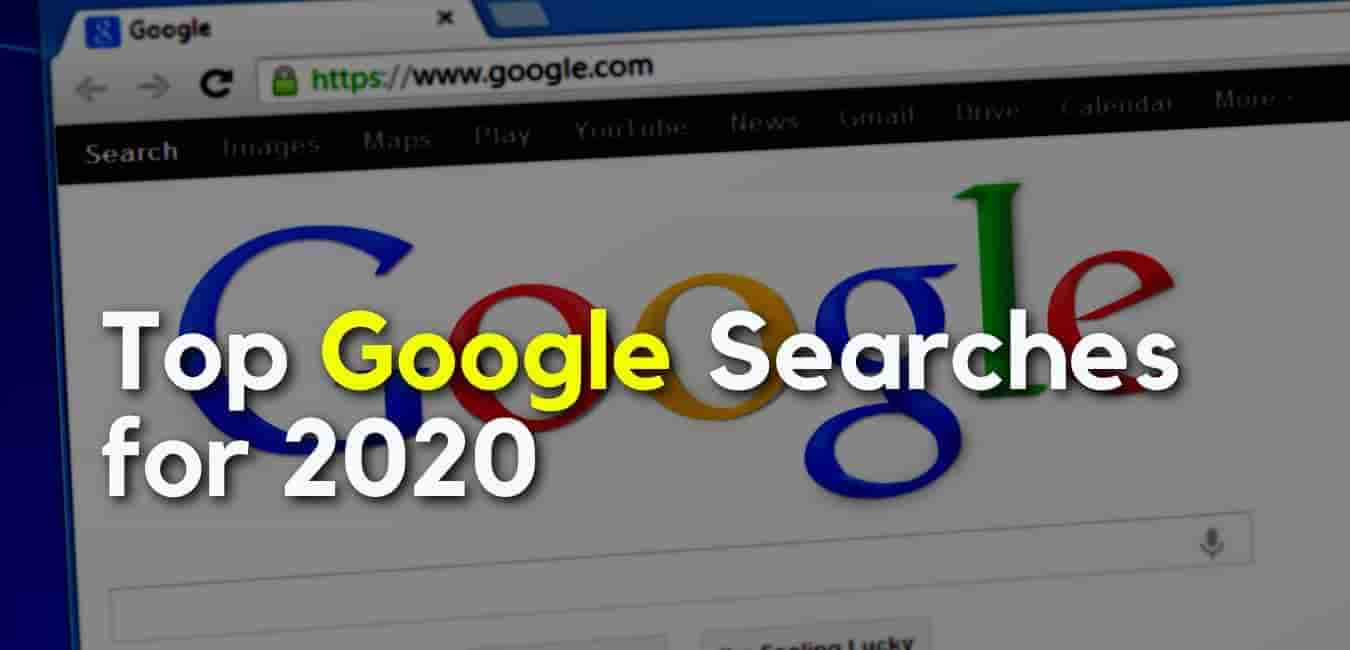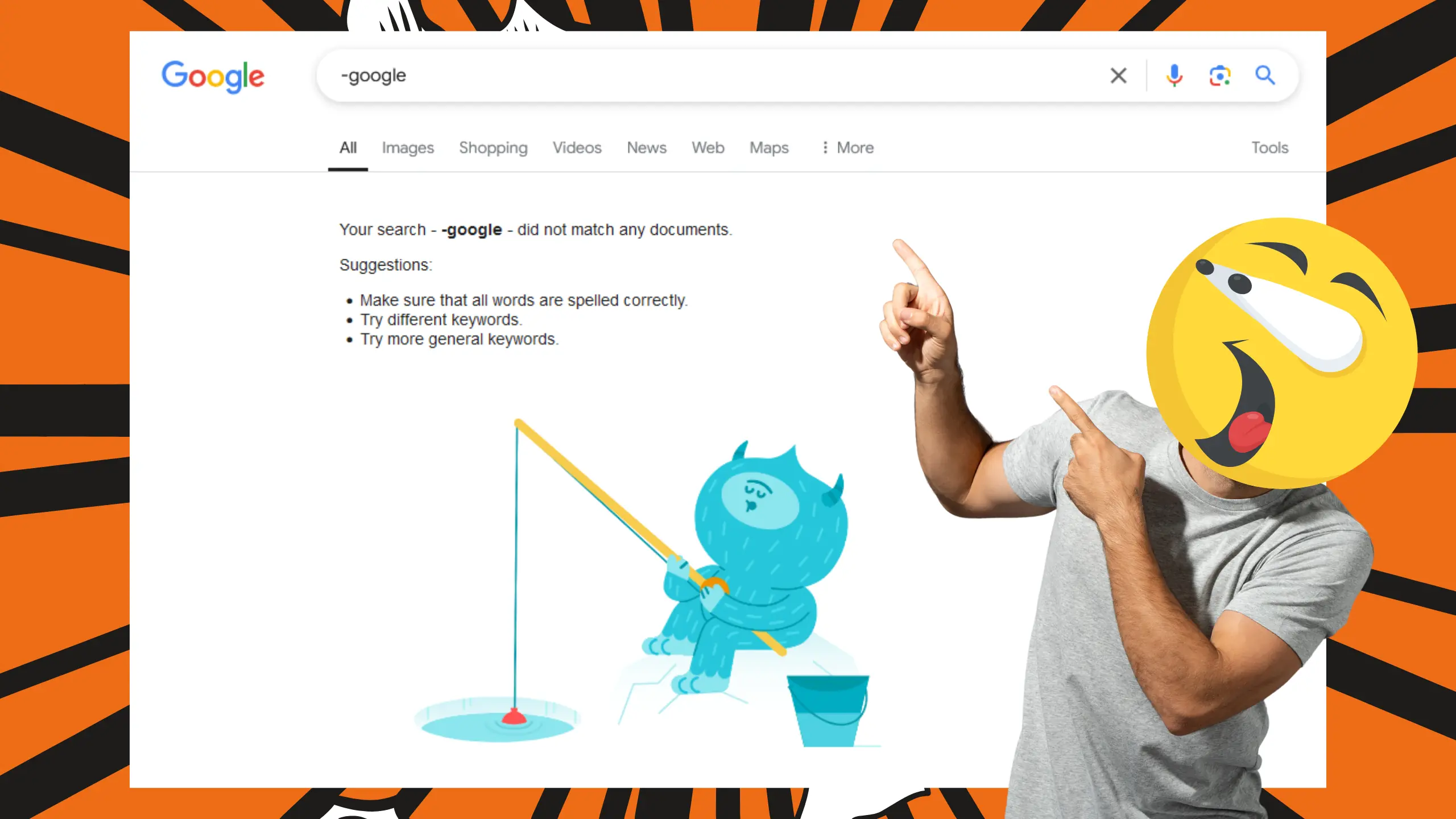You’ve probably heard the saying: “There are no shortcuts to success.”
Well, in the world of SEO, there are shortcuts — but they often lead you straight off a cliff.
Welcome to the topic of unethical SEO.
This is the dark side of search engine optimization — the tricks, the hacks, the too-good-to-be-true promises. If you’ve ever stumbled on a shady email saying “Rank #1 in Google in 7 days guaranteed!” or read about “secret SEO methods Google doesn’t want you to know”, you’ve seen this world in action.
It might look tempting. Who wouldn’t want quick results? But here’s the truth: these tactics don’t just break search engine rules — they can break your website’s reputation beyond repair.
So, let’s talk about what unethical SEO really is, how it works, the sneaky techniques people use, the risks they carry, and what you should do instead.
First, Let’s Get One Thing Straight: What Is Unethical SEO?
Unethical SEO (also called Black Hat SEO) is all about manipulating search engines to get better rankings, instead of earning them.
Think of it like cutting in line at a concert. You might get to the front for now, but the security guard (Google) is watching. And when they catch you — which they will — you’ll be kicked out, maybe even banned.
Google, Bing, and other search engines have clear guidelines for what’s fair and what’s not. Unethical SEO is anything that deliberately violates those rules.
It’s called black hat because, in old Western movies, the “bad guys” wore black hats and the “good guys” wore white hats. In SEO, the metaphor stuck:
- White Hat SEO = playing by the rules, focusing on real value.
- Black Hat SEO = breaking the rules for short-term gains.
Why People Still Do It
If it’s so dangerous, why would anyone still mess with unethical SEO?
Simple: It works… for a little while.
Unethical SEO can give you a quick ranking boost because it’s built to exploit loopholes in algorithms. The problem is, search engines are constantly updating to close those loopholes.
Here’s what happens with most “black hat” websites:
- They rank quickly.
- Google notices something suspicious.
- They get slapped with a penalty or removed from the search index.
- Traffic disappears overnight.
It’s a high-risk, short-term game — and in most cases, it ends badly.
The Dirty Toolbox: Common Unethical SEO Tactics
Let’s open the lid and look at what’s inside the black hat playbook. These are the tricks you’ll often see (and should avoid like the plague).
1. Keyword Stuffing: The Oldest Trick in the Book
Remember when early websites looked like this?
“Best coffee shop New York, New York best coffee shop, coffee shop near me, coffee best New York shop…”
That’s keyword stuffing — cramming your page with so many repeated phrases that it reads like a robot wrote it.
Why people do it: They think more keywords = higher rankings.
Why it’s bad: Google’s algorithms now detect unnatural keyword patterns instantly. Stuff too many in, and your page could vanish from search results.
2. Cloaking: Showing One Thing to Google, Another to People
Cloaking is like telling your boss you’re working from home while actually lying on the beach.
Example:
- Google sees a well-written page about “Best Running Shoes of 2025.”
- Real users see a page selling questionable weight-loss pills.
Why it’s bad: It’s outright deception, and Google’s not a fan. This is a fast track to a manual penalty.
3. Hidden Text and Links
If you’ve ever tried to hide vegetables in a kid’s dinner, you know the trick — except here, it’s spammy text hidden from human eyes.
How they do it:
- White text on a white background.
- CSS tricks to push text off-screen.
- Links hidden behind tiny dots or images.
Why it’s bad: It’s a sneaky way to add keywords or links without users noticing. But guess what? Google’s crawlers notice.
4. Buying Links and Link Schemes
Links are one of Google’s top ranking factors. That’s why link buying is a booming underground business.
The scam: Pay $100 for 500 backlinks from random websites.
Why it’s bad: Google values quality, not quantity. A single link from a reputable site is worth more than a thousand spammy ones. And paid link patterns are easy to spot.
5. Content Scraping and Duplication
Some sites simply steal content from others — copy-paste style — or use bots to scrape entire blogs.
Why it’s bad: Apart from being theft, duplicate content can hurt rankings for both sites. Google prefers original sources.
6. Automated Content
This is content generated by scripts or low-quality AI tools purely to fill pages with keywords.
The result: Gibberish articles that look like they were translated twice through Google Translate.
Why it’s bad: Poor user experience, high bounce rates, and eventual demotion in search.
7. Doorway Pages
These are low-quality pages stuffed with location or keyword variations, designed just to funnel people to one main page.
Example:
- best-plumber-new-york.html
- best-plumber-los-angeles.html
- best-plumber-chicago.html
All leading to the same contact form.
Why it’s bad: Google calls them “thin content” and will remove them from results.
8. Misleading Redirects
A redirect can be useful (like moving a page). But in black hat SEO, they’re used to trick users.
Example: Clicking a blog post link but ending up on a gambling site.
Why it’s bad: Instant trust killer — for both users and search engines.
9. Negative SEO
Some go even further — attacking competitors with spammy backlinks, fake reviews, or hacking.
Why it’s bad: Apart from being deeply unethical, this can cross into criminal territory.
10. Fake Reviews and Testimonials
Businesses create fake profiles to flood their listings with glowing reviews.
Why it’s bad: Misleads customers, violates platform rules, and can result in legal action.
The Cost of Playing Dirty
So what actually happens when Google catches you?
- Algorithmic Penalties: Your rankings drop suddenly after an update (like Penguin or Panda).
- Manual Penalties: A Google team member reviews your site and flags violations. You might get a warning — or be deindexed entirely.
- Loss of Credibility: Users notice spammy tactics and don’t trust you.
- Legal Trouble: Copyright claims, consumer complaints, even lawsuits.
- Recovery Costs: Fixing the mess can take months (and lots of money).
How Google Catches You
Google’s not just running on code — they have thousands of human quality raters and incredibly smart algorithms.
They look at:
- Keyword patterns — too repetitive? suspicious.
- Link profiles — too many from unrelated, low-quality sites? red flag.
- Content originality — matches found elsewhere? flagged.
- User behavior — if people bounce back to search results instantly, something’s wrong.
How to Stay on the Right Side (White Hat SEO)
It’s simple — but not always easy:
Follow Google Search Essentials (formerly Webmaster Guidelines).
Write for humans first, search engines second.
Create original, valuable content that solves real problems.
Earn backlinks by building relationships and providing value.
Keep your site fast, secure, and mobile-friendly.
Final Word: Slow and Steady Wins the SEO Race
Unethical SEO is like building a house on sand. It might look fine for a while, but eventually it collapses.
If you’re serious about ranking — and staying ranked — you need patience, consistency, and integrity.
Search engines aren’t the enemy. They’re trying to deliver the best content to users. If you align your site with that mission, you’ll win in the long run.
So skip the tricks. Build something worth finding.
Frequently Asked Questions About Unethical SEO
1. What are examples of unethical SEO?
Unethical SEO covers a range of shady tactics, including:
- Keyword stuffing
- Cloaking (showing different content to search engines and users)
- Buying or selling backlinks
- Copying content from other websites
- Using doorway pages
- Hiding text or links
- Fake reviews
- Automated low-quality content
These methods aim to trick search engines instead of earning rankings honestly.
2. Is keyword stuffing illegal?
No, keyword stuffing isn’t “illegal” in a legal sense — but it is against search engine guidelines.
Using it can lead to ranking drops, penalties, or even complete removal from search results.
Think of it as cheating in an exam: you might not go to jail, but you’ll get kicked out of the class.
3. Can you get banned from Google for unethical SEO?
Yes. If your site repeatedly violates Google’s rules or engages in severe black hat tactics, it can be deindexed — meaning it won’t show up in Google at all.
This can destroy your organic traffic overnight.
4. How does Google detect black hat SEO?
Google uses a mix of:
- Algorithms (like Penguin, Panda, and helpful content updates)
- Machine learning to detect unnatural patterns
- Manual reviews by human quality raters
If something on your site looks manipulative, it can trigger an automatic penalty or a manual action.
5. What is the difference between unethical SEO and ethical SEO?
- Ethical SEO (White Hat): Creates valuable, original content for users, builds links naturally, and follows search engine rules.
- Unethical SEO (Black Hat): Manipulates algorithms, ignores guidelines, and focuses on quick wins instead of lasting value.
6. Are all SEO shortcuts unethical?
Not necessarily. Using tools to speed up keyword research or optimize images is fine — as long as you’re not breaking rules.
The problem is when shortcuts compromise quality or mislead users.
7. What happens if I unknowingly use unethical SEO?
If it’s unintentional and minor, you may just see a drop in rankings.
However, repeated or severe violations — even if accidental — can lead to penalties.
It’s best to run regular SEO audits to catch and fix risky practices early.
8. Can hiring the wrong SEO agency get my site penalized?
Absolutely. Some agencies still use outdated or unethical tactics to deliver quick results.
If they build spammy backlinks, scrape content, or stuff keywords, your site could be penalized.
Always ask an agency about their methods and request transparency.
9. How long does it take to recover from an SEO penalty?
It depends on the severity of the violation.
- Minor algorithmic drops can recover in a few weeks after fixes.
- Manual penalties can take months to lift — and you’ll need to submit a reconsideration request to Google.
10. How can I protect my site from unethical SEO?
- Follow Google Search Essentials.
- Use trusted SEO tools for monitoring.
- Audit backlinks regularly.
- Avoid cheap “rank fast” offers.
- Work with ethical SEO professionals.




